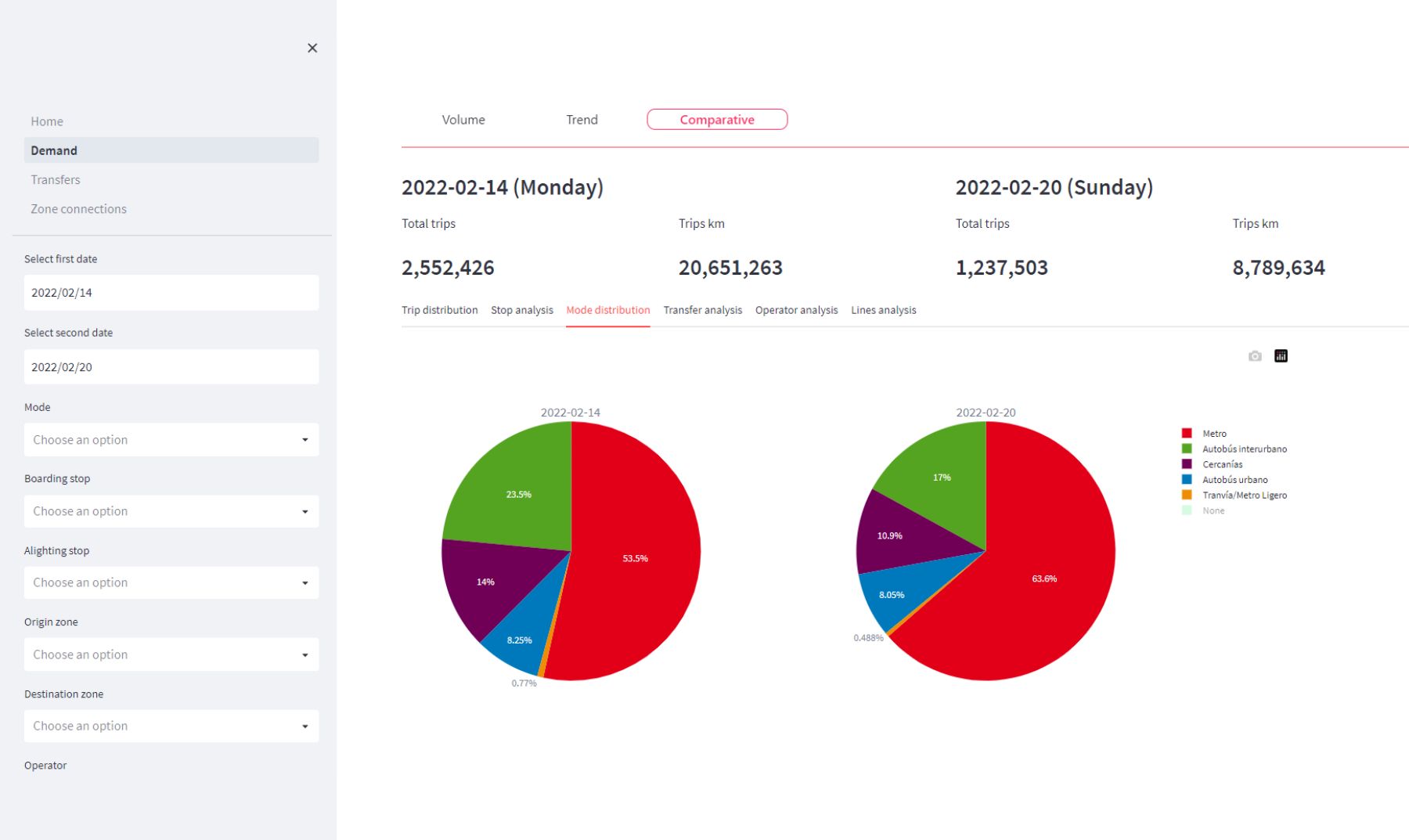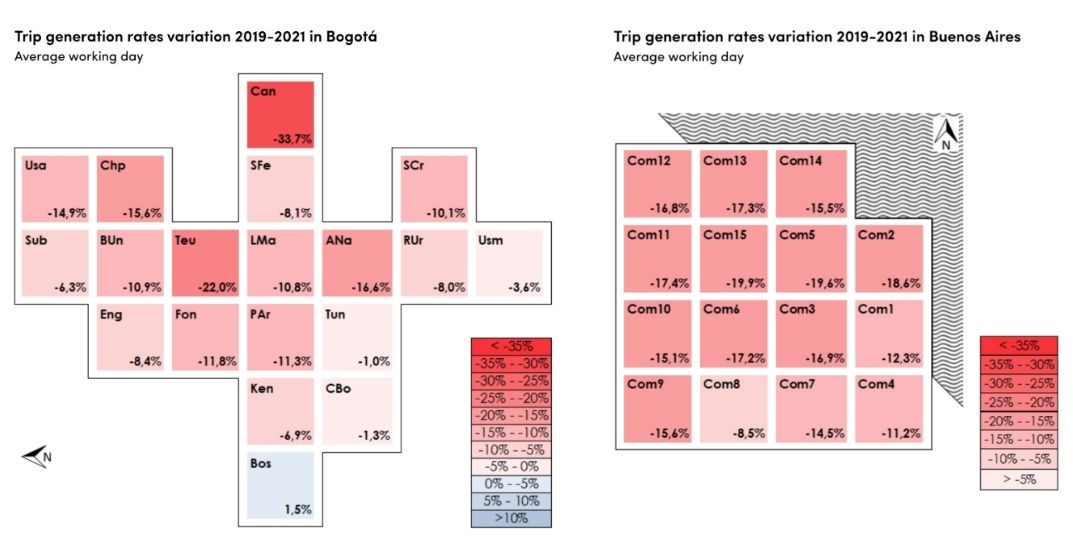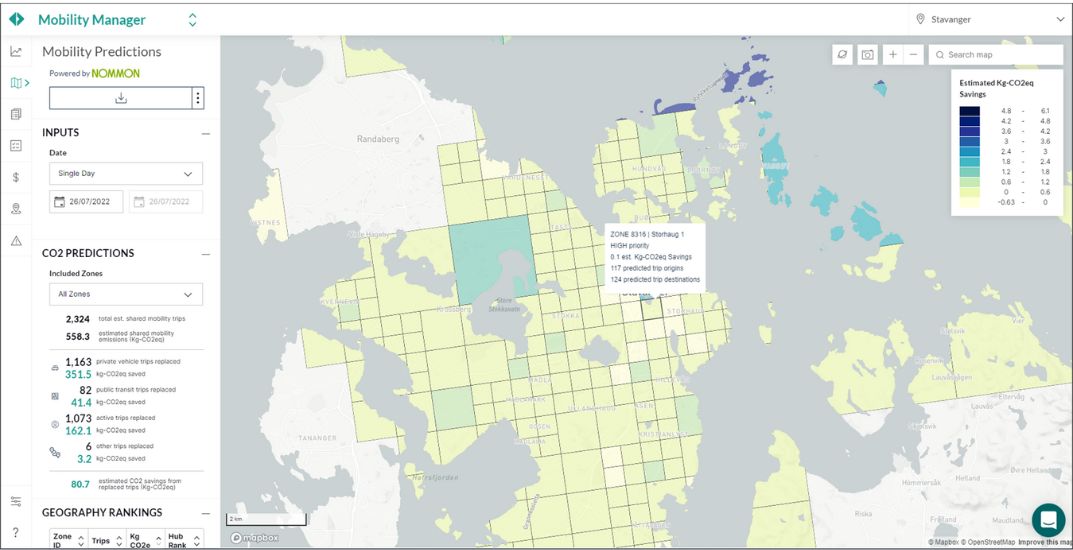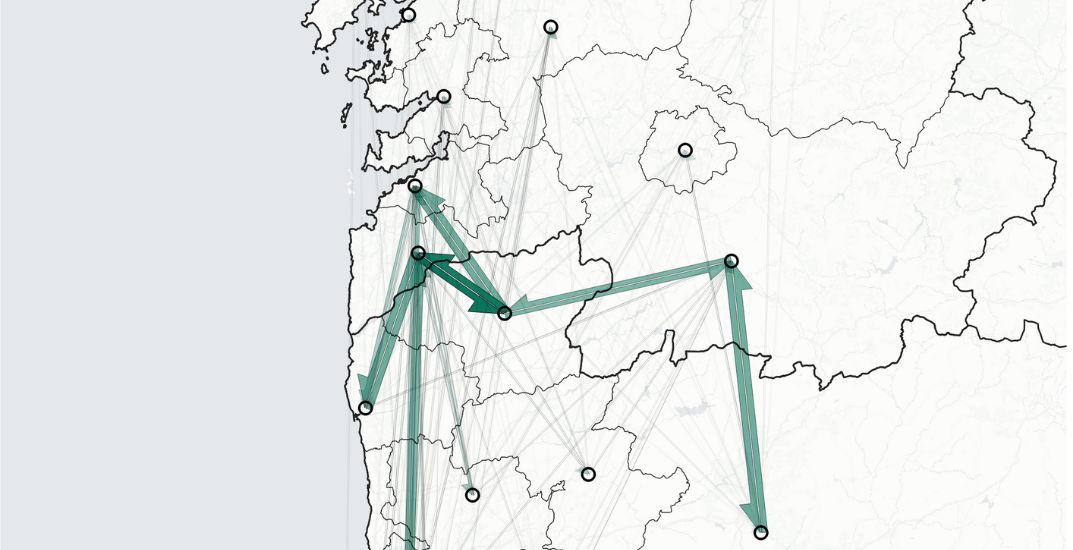This website uses cookies so that we can provide you with the best user experience possible. Cookie information is stored in your browser and performs functions such as recognising you when you return to our website and helping our team to understand which sections of the website you find most interesting and useful.
-
Analysing public transport in the Community of Madrid through data from intelligent payment systems

Briefing One of the most interesting data sources for characterising the use of public transport services are intelligent payment systems. From an operational standpoint, these systems offer several advantages over traditional billing and control methods: for instance, they facilitate and expedite vehicle access, and enable fare integration within a multimodal public transport system. From a…
-
MAIA

Context Air travel is inherently multimodal. Any passenger using air transport services needs to combine them with other modes that facilitate the movement between door-to-door origin and destination points and the origin and destination airports. A multimodal approach to the quality and efficiency of the passenger journey is essential, not only to ensure the competitiveness…
-
SYNCHROMODE

Context Transport plays a vital role in the EU society and the economy: ten million people are employed in mobility-related positions, accounting for 5% of the GDP, and effective transport systems are essential for European companies to increase their competitiveness in the global economy and impose a strong impact on people’s quality of life. The…
-
WalkFlow

The WalkFlow project The project WalkFlow, funded by EIT Urban Mobility, aims to develop a tool for monitoring and predicting pedestrian flows by leveraging mobile location data and demonstrate its capabilities by analysing walking flows in the city centre of Braga, in Portugal. The tool primarily uses anonymised mobile network data and location data from…
-
Monitoring travel demand in Bogotá and Buenos Aires during the pandemic

Briefing Public transport is often considered as the backbone of sustainable urban mobility. The impact of the COVID-19 crisis on public transport demand, driven by social distance measures and perceived contagion risk, has been a major challenge for transport authorities and operators. Latin American cities are not an exception: while demand decreased by 60-90% in…
-
Predicting CO2 savings thanks to shared mobility services in the city of Stavanger

Briefing Recent years have seen a rapid growth of shared mobility services in cities. Scooters, bicycles, motorcycles, etc. are flooding the streets and promise to be a sustainable solution to replace private vehicles. However, without the right policies and regulations in place, smart mobility may also cannibalise public transport, induce new motorised trips, and compete…
-
Analysing cross-border mobility between Spain and Portugal

Briefing One of the cornerstones of European integration is the freedom of movement between EU countries. The population of border regions have benefited from the possibility of working, shopping and spending leisure time on any side of national borders, leading to increasing travel demand between neighbouring countries. Besides the notable improvements in highway connectivity (e.g.,…
-
CONDUCTOR

The project The CONDUCTOR project aims to design, integrate and demonstrate advanced, high-level traffic and fleet management that enable efficient and globally optimal transport of passengers and goods, while ensuring seamless multimodality and interoperability. By using innovative dynamic balancing and priority-based vehicles management (both automated and conventional) CONDUCTOR builds upon state-of-the-art fleet and traffic management…
-
PASSPORT

The project PASSPORT was an industrial research project led by Nommon and co-financed by the Center for the Development of Industrial Technology (CDTI) and the European Regional Development Fund (ERDF). Its goal was to provide public transport authorities and operators with a tool to help them integrate the evaluation and design of the public transport…
-
SOTERIA

Context In response to the growing concern among European citizens over road safety, the European Commission (EC) has adopted ambitious road safety goals. In continuation with the previous roadmaps for 2010 and 2020, the EC has set a new 50% reduction target for the number of fatalities and serious injuries on European roads by 2030,…
